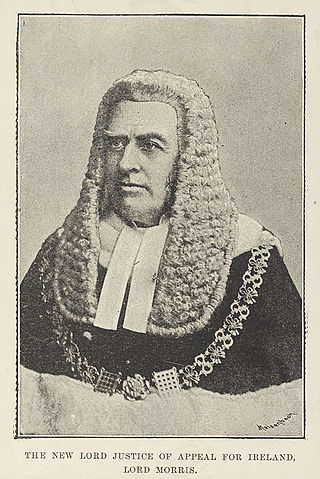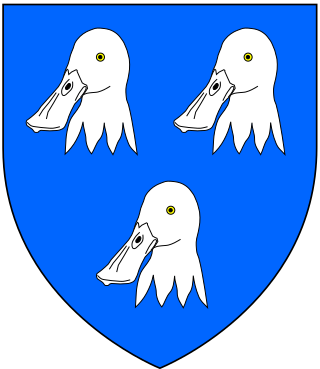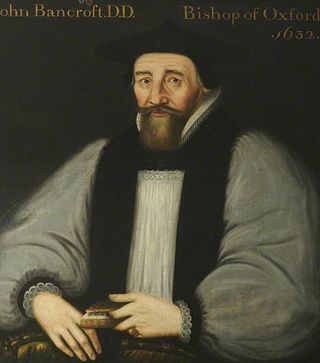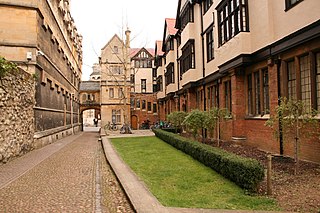Related Research Articles

The Attorney-General for Ireland was an Irish and then, from 1801 under the Acts of Union 1800, United Kingdom government office-holder. He was senior in rank to the Solicitor-General for Ireland: both advised the Crown on Irish legal matters. With the establishment of the Irish Free State in 1922, the duties of the Attorney-General and Solicitor-General for Ireland were taken over by the Attorney General of Ireland. The office of Solicitor-General for Ireland was abolished at the same time for reasons of economy. This led to repeated complaints from the first Attorney General of Ireland, Hugh Kennedy, about the "immense volume of work" which he was now forced to deal with single-handedly.
John Robert Baines, is a retired British Egyptologist and academic. From 1976 to 2013, he was a Professor of Egyptology at the University of Oxford and a fellow of The Queen's College, Oxford.

David McLellan is an English scholar of Marxism. He has written extensively on the thought of Karl Marx, Friedrich Engels and Simone Weil.
Roxborough may refer to:

Edmund Lacey was a medieval Bishop of Hereford and Bishop of Exeter in England.

The Very Revd. John Herbert Severn Wild (1904–1992) was Dean of Durham and Master of University College, University of Oxford.

Frederick Charles Plumptre (1796–1870) was a Victorian academic and administrator. He was Master of University College, Oxford for many years until the end of his life and concurrently Vice-Chancellor of Oxford University for four years.
John Browne (1687–1764) was an Oxford academic and administrator. He was Fellow and Master of University College, Oxford, and also served as vice-chancellor of Oxford University.

Richard Clayton was a Canon, Oxford academic and administrator. He was Master of University College, Oxford, from 1665 until his death in 1676.
Thomas Walker was an Oxford academic and administrator. He was twice Master of University College, Oxford.

John Bancroft was an English clergyman and academic, who served as Bishop of Oxford and Master of University College, Oxford.
James Dugdale was an Oxford academic and administrator. He was Fellow and Master of University College, Oxford.
John Martyn, also known as John Marten, was a Master of University College, Oxford, England.
John Crayford was a Master of both Clare College, Cambridge, and University College, Oxford, England. Martyn was unusual in being a Master of colleges at both the universities of Oxford and Cambridge. He was the only Master of University College to also have been a Master at a Cambridge college.
William Gregford was a Master of University College, Oxford, England.
Ralph Hamsterley was a Master of University College, Oxford, England.
Robert Burton was a Master of University College, Oxford, England.
John Castell was a Master of University College, Oxford, and later a Chancellor of the University of Oxford. Castell was a Fellow of University College. He became Master of the College circa 1408. He also held preferment in the Diocese of York with his mastership. In 1411, a sentence of excommunication was issued by the Archbishop of Canterbury, Thomas Arundel, against Castell, Fellows at the College — Robert Burton, John Hamerton, and Adam Redyford — and the College as a whole, due to Lollardy leanings. An appeal to the Pope against the excommunication was made by the bursar of the College, John Ryvell. Castell survived the controversy and continued as Master until 1420.

John Appleton was a Master of University College, Oxford, England.
References
- ↑ Carr, William, University College , Routledge, 1998. ISBN 978-0-415-18632-2. Chapter IV, The Fifteenth Century (pages 53–73).
- 1 2 Darwall-Smith, Robin, A History of University College, Oxford. Oxford University Press, 2008. ISBN 978-0-19-928429-0. After Martyn: 1473–1509, Pages 66–67.